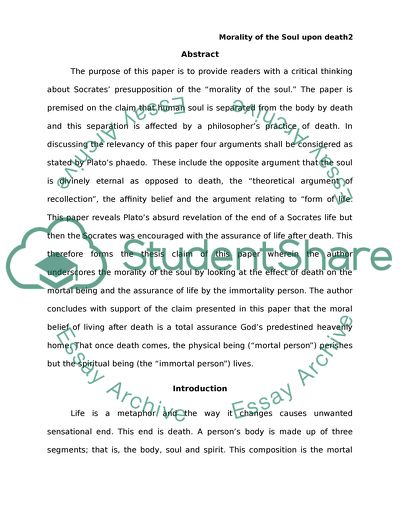Cite this document
(“The arguments that Socrates provides of the immortality of the soul in Essay”, n.d.)
Retrieved from https://studentshare.org/philosophy/1464100-the-arguments-that-socrates-provides-of-the
Retrieved from https://studentshare.org/philosophy/1464100-the-arguments-that-socrates-provides-of-the
(The Arguments That Socrates Provides of the Immortality of the Soul in Essay)
https://studentshare.org/philosophy/1464100-the-arguments-that-socrates-provides-of-the.
https://studentshare.org/philosophy/1464100-the-arguments-that-socrates-provides-of-the.
“The Arguments That Socrates Provides of the Immortality of the Soul in Essay”, n.d. https://studentshare.org/philosophy/1464100-the-arguments-that-socrates-provides-of-the.


